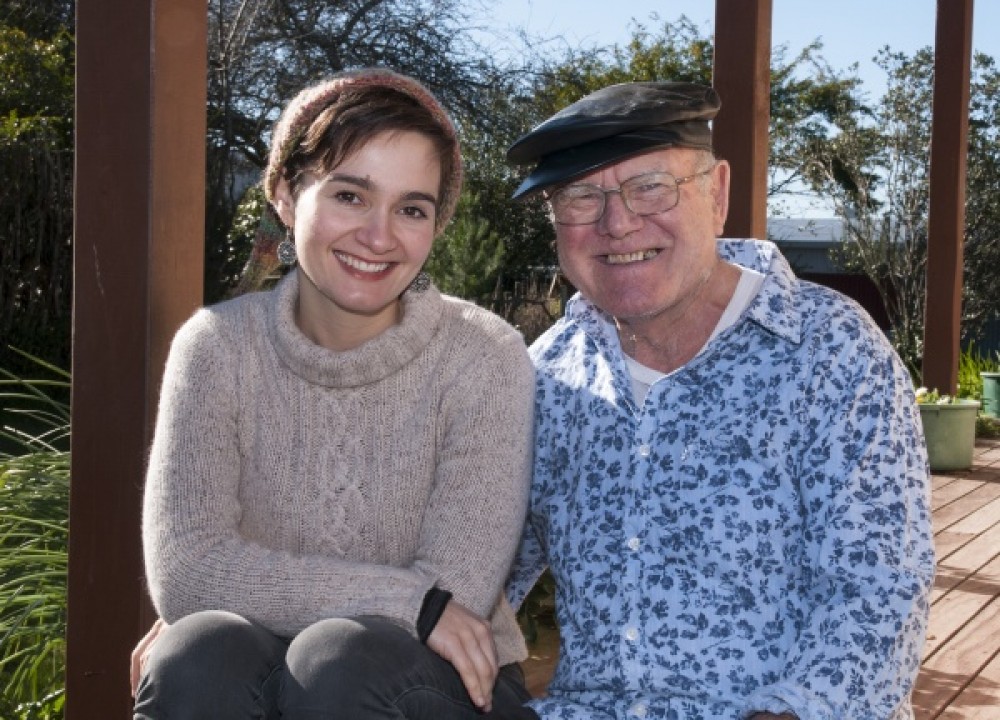The days in Rotorua begin when early light invades the sleep-out. It’s an extra room my dad, in his Glaswegian accent, calls the “wee whare”.
As I get a pot of porridge bubbling on the kitchen stove, the ca-thunk, ca-thunk of Dad’s offbeat stroke-shuffle becomes audible in the next room. I turn to greet him, knowing that he’ll now be dressed and ready to perform his latest morning comedy routine.
Sure enough, my 80-year-old father is in the doorway, exhibiting his version of a catwalk pose. “How does blue go with the machine-gun jersey?” he bellows as his model-pout explodes into a grin. The “machine-gun jersey” is a moth-ravaged garment of navy wool. The spray of “bullet” holes over his chest is definitely accentuated by shirts of a bright colour.

Dad’s a funny sort. He laughs on the frequent occasions when he forgets what day it is, or what your name is. He laughs when he accidentally pours milk into his green tea. He continues laughing while he drinks it regardless.
DIY stroke recovery
Dad had an ischemic stroke shortly before I was born. He had no occupational therapist, and finding that his personal visions of recovery far exceeded those of his physiotherapist, he developed his own rehabilitation regime. In time he could drive, walk, cycle and garden again. Dad maintains that the stroke was the best thing that ever happened to him. It interrupted a lifestyle of workaholism as a carpenter. It caused him to pursue different roles and interests. Most recently, Dad has taken up Mandarin classes at the local polytech and still contributes to his Baha’i community. But growing things has been a love of his ever since I can remember.
I’m here with Dad to demolish his 20-year-old garden; to flatten the foundations of this beloved occupation. The vegetable garden is eight by five metres, the same dimensions as the adjacent house which he built himself. Growing up, I was here with my sister every second weekend. The three of us were occupied by all manner of things: extracting honey from hives, making toast over bonfires, writing stories. But our participation in Dad’s garden was limited to picking flowers and screwing up our noses at the rest of the bounty. I couldn’t begin to understand why Dad’s new potatoes caused such a song and dance every Christmas.
It’s true that I regret not having spent more time here with Dad in the garden, especially now that he has decided to give it up. But I am trying to make myself useful. Admittedly, a fair portion of the trip down from Auckland was spent entertaining visions of myself as the skilful occupational therapy student supporting this transition.
Growing old intelligently
So far, my strength has come to good use and we have both done a lot of digging, sweating and stacking, but adapting tasks, developing strategies? Who am I kidding? He’s been adapting tasks and developing strategies since before I was born.
Support with the transition? This is what he had to say about making changes: “I find the garden really tough to keep up with. And these bloody weeds… they come up in multitudes. For me, I know that giving it up has to happen because I intend to grow old intelligently, and that requires you to be prepared to make changes; to realise that you’re no' the young bloke that you used to be; to realise and accept that you’re no’ able to do all the stuff you were able to do as a young person. So if you can modify things, so that if you have a big garden, you can reduce it at least to a wee garden. That’s a step in the right direction.”
When I leave Dad’s, a library book sits open on the table beside his armchair: The everything small-space gardening book: All you need to plant, grow and enjoy a small-space garden.
I hope to visit Dad again soon to work with him on the garden.
Abridged with permission from OT Insight vol.36 no.3
